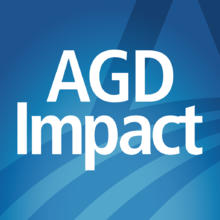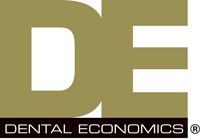QUICK-TURN-AROUND
Lease or Purchase
The Dentist is in the Details
- 803-324-3220
- Email Us
Press
A Look At Mobile Dentistry - 01/2023
Access to dental care is a major problem in the United States, with a wide variety of factors preventing Americans from regularly visiting the dentist. One of the major barriers that many consumers face is the uneven distribution of dentists across the country. According to "Dental Crisis in America: The Need to Expand Access," a 2012 report from the U.S. Senate Subcommittee on Primary Health and Aging, dentists are disproportionately found in suburbs, even though those who are most in need of care are concentrated in inner cities and rural communities.
Used with permission of the Academy of General Dentistry.
© Copyright 2023 by Academy of General Dentistry. All rights reserved.

Not Your Father's RV - 10/2022
I started my mobile dental practice, Dental Access Carolina LLC (DAC), in 2001 as an outreach project of my traditional practice. it was an experiment because I wasn’t sure how bringing comprehensive dental services to economically disadvantaged children at their schools would be received. I questioned whether the model could pay for itself from the fees generated versus the funds from donations and grants. Therefore, the cost entering an unknown market was a major factor.

The Road Less Traveled - 09/2022
The majority of dentists practice their full career in a particular setting, whether it’s a private practice, academics, or the military, and then either transition out completely or into another traditional path, such as temping, volunteering, or teaching. All these options are viable and many lead to continued usefulness and engagement in dentistry. However, there is a different way of doing things.

Mobile Dentistry Driven to Excellence - 08/2022
The Pandemic ravaged the world and changed the way we operate in nearly every facet of our lives. For dentists, especially new dentists, the traditional models for practice changed dramatically, even before the COVID crisis. Out-of-control student loan debt is a major factor driving these changes and preventing many new dentists from following the time-honored track of owning their own practices.

Do Well By Doing Good - 06/2022
The World as we know it is changing before our very eyes. With COVID, the rapidly declining state of geopolitical affairs, and domestic issues here at home, it is painfully obvious that we must do things differently. We cannot continue to operate in the same way we always have.

Do Well While Doing Good - 03/2017
One of the best ways to improve access was to expand the number of providers who properly and ethically employ mobile dental clinics. Mobile clinics take the service to the people, removing the major barriers to access for those who are least likely to receive care by traditional means, but their use is discounted by the dental community at large. Sadly, the "establishment" in dentistry still fails to recognize the value of mobile dentistry and its impact on improving access to care in a variety of arenas, not the least of which are the low-income and elderly populations.

A Temporary Dental Office Can Be A Good Plan B! - 09/2011
What would you do if your dental office was suddenly demolished by floods, tornadoes, earthquakes or another natural disaster? Or was even just temporarily shuttered due to construction, a small fire or burst pipes? Aside from losing business, a practice that shuts its doors even for a sort period of time rapidly loses its value. Dr. John Reese, founder of Dental Access Mobile Clinics, discusses what all dentists should have in their practice arsenal – a Plan B. Learn how renting a temporary dental office can be a practice saver that allows you to continue to see your patients, and generate income.

Mobile Dentistry Done Right - 01/2009
With rampant fraud and stricter regulations, why would any dentist consider a mobile practice? Dental Access Mobile Clinics Founder Dr. John Reese explores a free enterprise solution to a public health problem. Follow him on his journey to "get it right," beginning with a program providing dental care to disadvantaged South Carolina school children. Learn about the business of mobile practice, the "astonishing" tax benefits, and the scope of mobile clinics and equipment available today. With sound business principles and systems in place, mobile dentistry is a win for patients, families, communities, and a rewarding and lucrative career for the dental professionals who serve them.

Mobile Dentistry Entrepreneurial Boom Spurs Debates - 12/2007
While horror stories have led to public outcry for state legislation, some mobile dentistry practitioners have gotten it right, like John Reese, DMD, whose successful pilot program in South Carolina schools launched a mobile dentistry enterprise. For every profit-driven operation that preys on captive patient populations, there are many practices that successfully treat the underserved. These dentists have the best interests of their patients at heart, are properly trained to offer quality care, keep good records, have amply equipped mobile facilities, and are eager to comply with lawmakers. Learn which states are enacting legislation to restrict mobile dentistry providers, and which have a long way to go.

